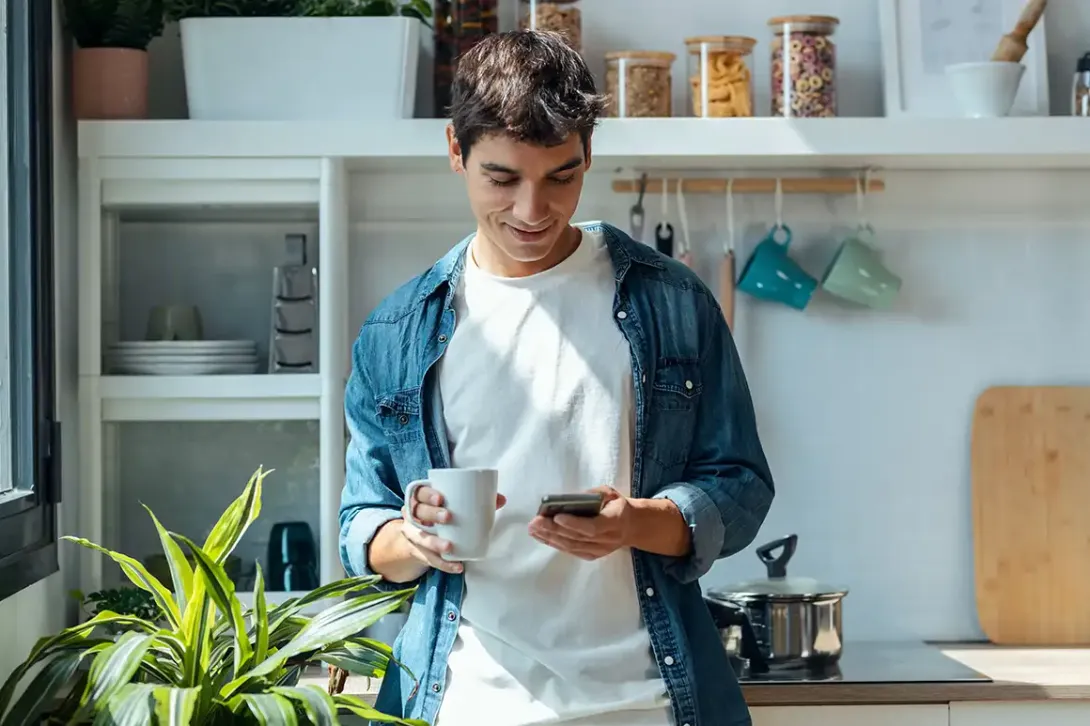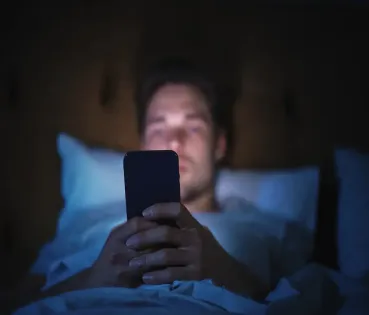
Digital dieting or how to use your mobile phone responsibly while on holiday
To disconnect from technological devices, it is advisable to disable notifications and avoid the temptation to photograph everything that happens during the summer.
In an increasingly digital society, screens have become an unavoidable part of everyday life. One in four people check their phone every 30 minutes and 25% of millennials do so more than 100 times a day, according to the University of California. From entertainment, personal finances, education and work to shopping and leisure, smartphones are involved in everything we do and it makes our life easier.
For many people, summer is the perfect excuse to reduce this constant interaction with our devices. A common challenge during the holidays is to go on a digital diet. In other words, trying to use your smartphone responsibly wherever you are, and disconnecting from your phone a bit more than usual. Because the fact is that excessive use of smartphones and other devices leads inevitably to consequences for both our physical and mental health.
How to digital detox?
Almost 4 hours a day in front of a smartphone. According to the Digital Consumer by Generation report, this is the average time that every Spaniard spends tethered to their social network notifications, work emails or simply checking family photos or reading the news. During all these hours, people aren’t sleeping, resting, playing sports, socialising with family, friends or work colleagues...
This excessive use of technology and exposure to blue light from devices affects our health and can spoil our holidays. To avoid this, it is important to establish smartphone-free times, for example, before going to bed or during meals, and to silence notifications, as well as delete apps that are not really useful. This will help you improve, among other things, the quality of your sleep and strengthen social relationships.
Another way to go on a digital diet this summer and make it a success is to switch back to analogue. This is as simple as buying an alarm clock, allowing you to leave your mobile phone out of the bedroom and, consequently, not checking the likes or the latest news on a device at bedtime. It has been proven that smartphone use before bedtime has a negative effect on the quality of sleep and is one of the most frequent causes of insomnia.
Also, to stay away from screens for long periods but still be reachable in case of an emergency, you can dust off that old mobile phone that is only good for making calls. This, in turn, helps you avoid the temptation of photographing everything that happens while on holiday, choosing instead to live and experience things directly.
The importance of digital detox in childhood
Children spend many hours in front of a computer, smartphone, television or tablet and, moreover, the age at which they start is getting younger. According to the study “From Alpha to Z, raising the digital generations”, by Qustodio, young children spend around 4 hours a day in front of a screen. As soon as the school year ends, this use increases by 30% on social networks, video games, online videos... What is the actual relationship between children and screens?
When they are used in a responsible, balanced and controlled way, such devices provide countless benefits. Beyond providing entertainment, they can also be very useful educational tools.
However, excessive smartphone use can lead to delayed verbal skill development, impaired social skills or sleep disturbances, among other issues. In fact, in Spain, according to a Ministry of Health survey of 4,000 young people, 21% of 10-25 year olds suffer from a technology-related behavioural disorder.
For all these reasons, taking into account the degree of development and maturity of each child, it is important that adults supervise and set limits to help children and teenagers make proper use of smartphones. To achieve this, some suggestions:
- Limit daily or weekly use of all electronic devices.
- Agree on times or moments when the phone cannot be used, such as, for example, family dinners.
- Educate by example and, as an adult, promote responsible use of mobile phones.
- Discuss and educate about security and privacy on the Internet.
- Encourage open family communication, without taboos, ensuring children feel comfortable.
- Activate parental controls and monitor the content and the apps that children use or view.
- Encourage alternative activities, preferably with the family and outdoors.
Ultimately, the summer holidays allow us to recover that personal and family time and space that day-to-day obligations tend to push aside during the rest of the year. Knowing how to make the most of this opportunity means switching off all smartphones, even if it is only occasionally. A digital diet will allow you to make the most of your long-awaited holidays.




